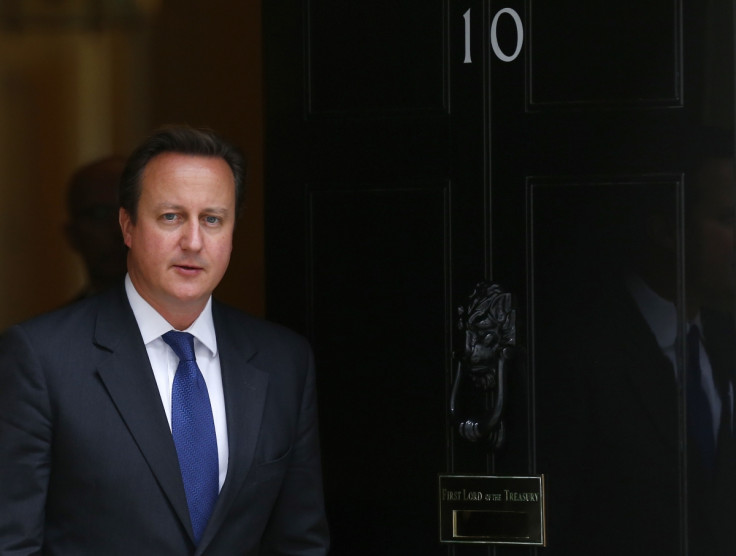David Cameron Opens Faith Debate after Rift with Church Leaders

Tony Blair once declared he did not speak openly about his faith because people would think he was a "nutter",. His spin doctor Alastair Campbell famously insisted "we don't do God".
David Cameron has not shown the same restraint. Writing in the Church Times about his own faith he has urged people to be "more confident about our status as a Christian country".
He even suggested Christians should be "more evangelical about a faith that condemns us to get out there and make a difference to people's lives".
It is not that long ago that such pronouncements would have been entirely unremarkable. It was assumed all senior figures in the establishment were believers, and those who were not probably kept it to themselves.
The Church of England was regularly referred to as the Conservative party at prayer while Margaret Thatcher even famously suggested the good Samaritan was a Thatcherite, saying he could only afford to be good because "he had money".
But, as Britain has become a less devout and more diverse country, politicians have not felt the need to appeal to peoples' assumed Christianity for fear of losing votes, but have attempted to woo all faiths.
(I'm) not that regular in attendance and a bit vague on some of the more difficult parts of the faith.
Now, both opposition party leaders are unapologetically atheists and faith, or lack of it, has become a matter of debate.
Why, though, does the prime minister not think, as Blair did, that he will now be branded a "nutter"?
Probably because his beliefs are not of the same order as Blair's, whose devout Catholicism was well known long before he converted, once out of power, but which he kept secret.
You cannot, for example, imaging interviewers asking Cameron if he gets down on his knees to pray over issues of war, or alongside a Republican president.
What worried many about Blair's faith was his suggestion that on issues like the Iraq war, he answered to a higher power, not just the voters.
Cameron, on the other hand, has written that he is a "classic" Anglican: "not that regular in attendance and a bit vague on some of the more difficult parts of the faith."
In other words, he seems reassuringly wishy-washy and unlikely to be moved to make decisions based on divine intervention.
Then there is the blatantly political element of Cameron's article. He has found himself under attack from the leaders of both the Anglican and Catholic churches over his welfare policies and poverty and at odds over gay marriage and women bishops.
In an attempt to build bridges and perhaps head off further assaults before the election, he has suggested they are all on the same side and stressed: "Some issues such as welfare are more controversial. I sometimes feel not enough is made of our efforts to tackle poverty."
And then, as always nowadays, there is the Ukip threat. Those old-style, rightwing, CofE Conservatives are exactly the sort of disillusioned Tories Nigel Farage is wooing with great success. And Cameron wants them back in the fold.
Alongside that is the less attractive element which suggests British culture is under attack by immigrants, particularly Muslims out to destroy our very way of life.
Equally extreme are the view of some Christians who claim "militant atheists" want to do something similar, apparently forgetting the fact there is an established church in the country with bishops in the House of Lords routinely making the laws that govern the country.
That itself raises the issue of the potential benefits of splitting church and state so that an individual's faith remains just that, and not something that attracts huge privileges.
The state would not then find itself getting tied up in knots as it attempted to deal with issues such as same-sex marriage, women priests and the like.
Meanwhile, the growth of faith schools, championed by Tony Blair, is already seen by critics as hugely divisive and undermining of social cohesion, with some pointing to Northern Ireland as a lesson.
And there are deeper fears that some institutions might harm students' education and even damage wider society by encouraging superstition over rationality.
As ever, then, religion is a huge, controversial and emotional debate. And David Cameron has stepped right into the middle of it.
© Copyright IBTimes 2024. All rights reserved.






